This article contains affiliate links. We may earn a small commission if you purchase via these links.
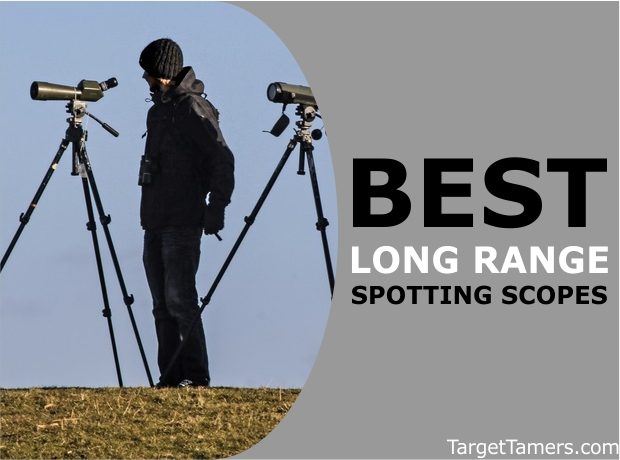
Are you trying to spot legal game from a mile away before deciding to hike over that way?
Maybe you want to want to safely watch wildlife from a distance?
Having difficulty spotting groupings at the range?
A spotting scope can be the difference between seeing usable detail from several hundred yards away or being no better than what your binoculars can offer.
Here's our lineup of the spotters that can bring all the details you need right to where you're standing!
QUICK LIST: 10 Best Spotting Scopes for Long Range In 2023
- Zeiss Harpia Spotting Scope
- Vortex Viper HD
- Pentax PF-80ED-A
- Leupold SX-5 Santiam HD
- Maven S.1A 25-50x80
- Bushnell Forge 20-60X80
- Kowa TSN-773
- Celestron C90 Mak
- Gosky 20-60X80
- Swarovski ATX/STX 65
Best Spotting Scopes for Long Ranges
| IMAGE | PRODUCT | DETAILS | |
|---|---|---|---|
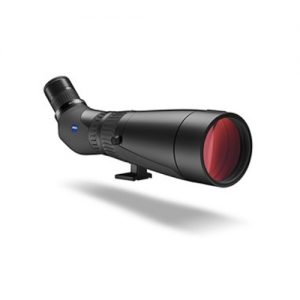 | Zeiss Harpia Spotting Scope |
| CHECK PRICE |
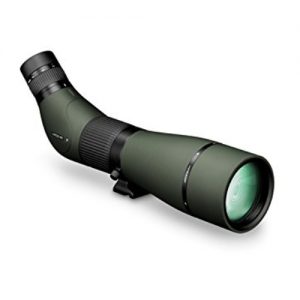 | Vortex Viper HD |
| CHECK PRICE |
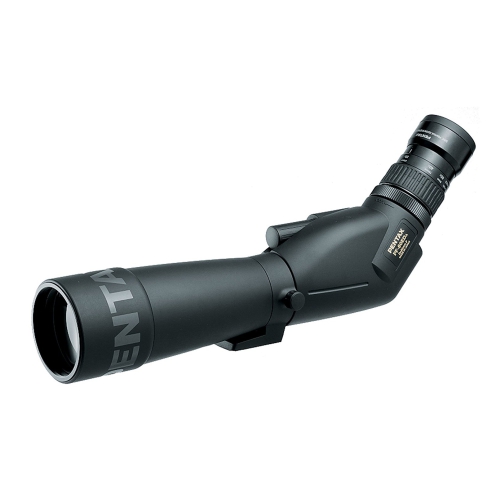 | Pentax PF-80ED-A |
| CHECK PRICE |
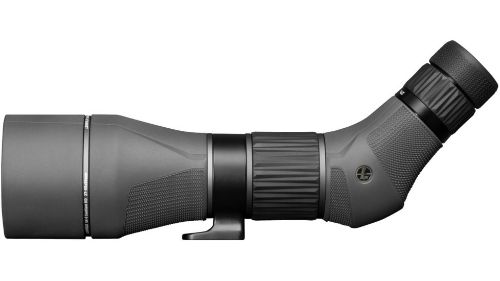 | Leupold SX-5 Santiam HD |
| CHECK PRICE |
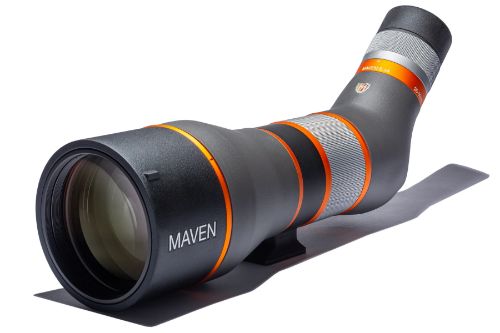 | Maven S.1A 25-50x80 |
| CHECK PRICE |
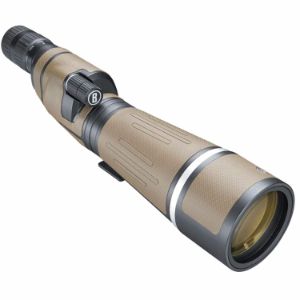 | Bushnell Forge 20-60X80 |
| CHECK PRICE |
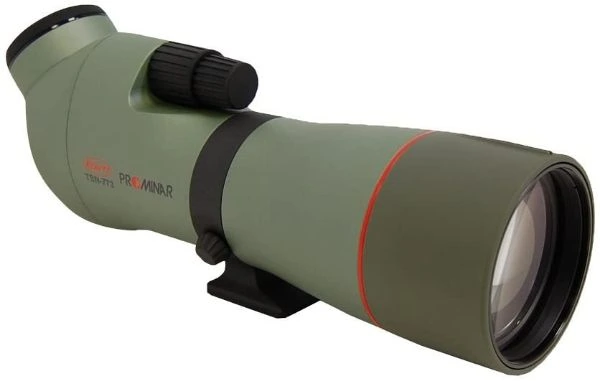 | Kowa TSN-773 |
| CHECK PRICE |
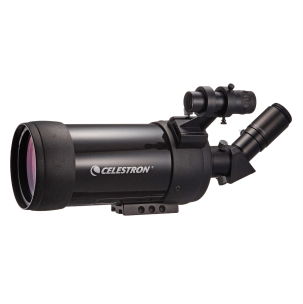 | Celestron C90 Mak |
| CHECK PRICE |
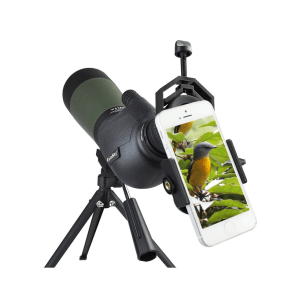 | Gosky 20-60X80 |
| CHECK PRICE |
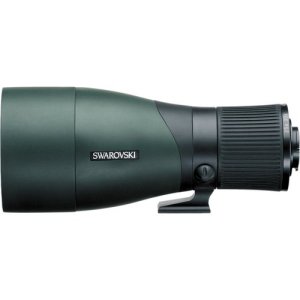 | Swarovski ATX/STX 65 |
| CHECK PRICE |
Why Trust Us?
After hundreds of hours of hand-testing spotting scopes in the field and at the range, and thousands more hours researching and writing about them, we feel we earn the title of experts when it comes to optics!
We purchase as many of the optics for our tests as possible, and run them through their paces to make sure they will perform at the range and in the field.
Our combined decades of experience from target shooting and hunting, to big game hunting and competitions has been integral in putting together this round-up of the best long range spotting scopes.
Get the inside scoop on how we test optics here.
Long-Range Spotters for a Variety of Budgets
Everyone wants to be able to see far away, and with premium glass, it's a luxury. But, it's that glass that makes all the difference. This begs the question, "How far is long range?" Most spotters will be good for up to 200 yards at the range despite its purchase price. But, we're talking about much further ranges than that. That takes us out of the mediocre class and into premium range.
Let's get this straight from the beginning. In order to see long range, you're going to have to spend some decent money. Cheap, full-size spotters don't have the optical build necessary to provide usable detail at max power making it unusable for long range applications. Budgeting too cheaply will only leave you with cheap optics. You may end up feeling ripped off and unsatisfied with poor image quality. If you're serious about seeing usable detail at extended ranges then get serious about your budget range.
But, we do hear what you're saying too. The more affordable spotters get more reviews and have a heavy online presence, but it doesn't mean they're the best spotter for the job. Can't pull the trigger on a high-end spotter? Then settle for one that's better than average. We know it's more money, but more cash will get you a better scope. If you think about it this way, you can spend more money on a scope versus all the splatter targets you'll end up buying just to see impact with a poor quality scope. Point made.
Since we do acknowledge that budget is a legitimate restraint, we've included a few options that should fit your budget needs while still pumping out max performance for long range viewing. First things first, before we get into the actual lineup, here's our list of the best of the best long range spotting scopes that are most definitely out of most of our budget ranges. But, if you have the one-time chance to splurge, feel free to get crazy on our quick links to these premium spotters!
- Burris Signature HD
- Leica APO-Televid 82
- Leupold GR & Mark 4
- Meopta MeoPro & MeoStar
- NightForce TS-82
- Swarovski ATX, ATS & STR
- Vortex Razor HD 27-60x85
- Zeiss Victory Harpia
Our 10 Top Long Range Spotting Scopes
1. Zeiss Harpia 85 - Best Overall

The new to 2018 spotting scope from Zeiss has topped the charts with its world-class glass and quality. It's replaced the Diascope that was once a brand favorite, but it's certainly doubled in price.
Spending this kind of money on an optic is no joke, but neither is the glass. FL glass and other custom glass elements come together to create an elaborate lens system to provide a flawless experience.
Expect everything from the Victory Harpia as it's the ultimate hunting, target range, birding, and wildlife observation spotter!
2. Vortex Viper HD 20-60X85 - Best Under $1000
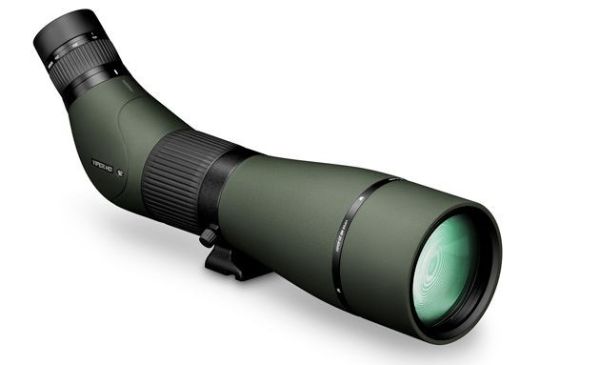
We promised to keep prices in the more affordable range to include viable options, and the new to 2018 Viper HD spotting scope absolutely fits the bill! Of course, there's the extraordinary Razor spotting scopes that are feature-packed to the max, but if you want to stay under $1000 for long range performance, the Viper is your best pick.
It's an excellent long distance scope for any activity from shooting at the range to watching birds on your patio. With its specs and glass quality, it's going to make an ideal, full-size scope for spotting legal game several hundred yards off to make the call on getting closer or moving on.
As a Vortex, it's got our full support behind it, not just for quality and exceptional warranty coverage, but also for cost! It can't get better than this.
3. Pentax PF-80ED-A - Best Under $1500
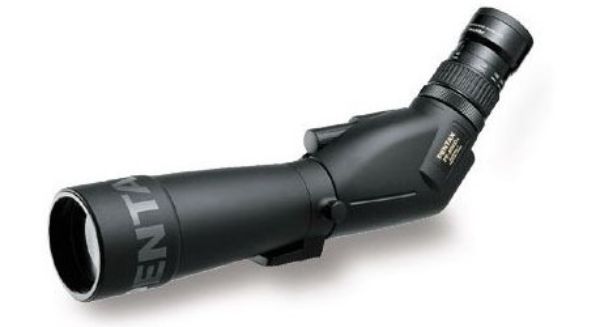
Pentax - they're not cheap, but they're cheaper than some other high-end brands, and that's why the PF-80ED falls into our lineup. Do you want to see groupings at 500 yards or more? The Pentax can definitely do that!
Equipped with ED glass, lightweight magnesium alloy body, and a 19 feet close focus distance, it's a "go-everywhere" type of spotter. Since it's a Pentax, there are several types of eyepieces available that are compatible with the spotting scope. Pick your range and you'll never be without distance reach again.
If you're a precision shooter that needs instant feedback at the range, the Pentax might definitely fit your needs!
4. Leupold SX-5 Santiam HD 27-55x80 - Best Under $2000

Making use of extreme high powers is essential to the long-range shooter who needs maximum clarity and optical performance. The Leupold may be on the short end of the stick at 55x, but it maintains high performance at max power compared to higher powered alternatives.
Pros:
- Professional-grade optics
- Oversized eyepiece
- Compact
- Extreme climate exposure
- Assembled in USA
Cons:
- Weight
Built with a compact length of 15”, the SX-5 Santiam is convenient for travel to the hunting field, shooting range, or birdwatching park. It weighs 68.7 oz, so it is heavy for a spotter given its 55x max power, but it’s still a large 80mm scope.
What contributes to the SX-5 Santiam’s capacity for bright and clear performance at maximum 55x power is the HD optics with calcium-fluoride lenses, phase-coated prisms, and Leupold’s proprietary FMC lens coatings. It offers fantastic edge-to-edge clarity and resolution, although minor CA is visible in the higher powers.
While there is stock to Leupold’s professional-grade optics, there is no clear-cut definition or disclosure of what this means, so it doesn’t quite fit the definition of being an alpha-grade spotter with fluorite glass.
Still, the Santiam will perform excellently for all things long-distance at the shooting range, in the hunt, and for wildlife viewing. Part of its well-done performance is its ultra-fast focusing system. It maintains focus well throughout the entire power range and only small, fine-tuning adjustments are needed.
This is the type of performance needed to size up your animal before deciding they’re the one that fills the tag or to see groupings at long ranges. The SX-5 is on the expensive side, but covered by the Leupold Lifetime Guarantee and that’s a type of warranty that can make it worth it.
5. Maven S1.A 25-50x80 - Best Under $2500

The Maven S.1 spotting scopes have Japanese glass, are assembled in the USA, and are excellent value for the money considering their performance. The S1.A is the angled model and offers 25-50x magnification with an 80mm aperture. Stunning optical performance is what gets you long-range performance.
Pros:
- Fluorite glass
- Prism coatings
- Magnesium/polymer frame
- Compact/lightweight
- Assembled in USA
Cons:
- Decent FOV
While many spotters optically sputter out at 10-20x before you reach max power, you can depend on the Maven S.1A to keep on giving at max 50x. It has Japanese fluorite glass with 5 groups and 7 elements in the 25-50x eyepiece.
The magnesium polymer chassis offers up a lightweight frame without compromise on strength. It protects Schmidt-Pechan prisms with dielectric and phase-correction coatings, and the objective lens has oilphobic and flat multi coatings.
It’s clear that Maven spared nothing in the optics. The S1.A has impressive contrast that makes long-range steel targets stand out. Resolution is fantastic even in lowlight to count tines when those last minutes count. You’ll be hard-pressed to find any CA or coma (off-axis distortion) with Maven’s flagship spotting scope. The result? Unparalleled edge-to-edge sharpness for following and identifying birds.
The S1.A has a 3-position eyecup that’s immoveable in each position and other convenience features include an extendable sunshade and rotating tripod ring. The focus barrel is heavily textured and may be a sore point for bare fingers. From another perspective, its stiffness and grippy texture is ideal when wearing gloves in any application and ensures intentional adjustments.
With a FOV of 115-84 ft, it’s not as impressive as alternatives. But given the visual comfort of ease when sitting behind the eyepiece, the stellar optical capabilities, and how they benefit long-range shooting, its FOV offers more than the wider alternative that doesn’t have the optical quality to compete. Given that’s the only nit-picky ‘downside,’ the Maven S1.A has a lot of value even if it’s only up to 50x power.
6. Bushnell Forge 20-60X80

Ah, Forge - the new, high-end line of optics from the optics obsessed manufacturer. If you're just as crazed as they are in upgrading everything you have with the latest offerings the optics industry has to offer, you're obligated to try your hand with a Forge spotting scope.
Pros:
- High magnification
- ED glass
- Multiple coatings
- Dual focus
- Weatherproof
Cons:
- Price
It has the right specs to be set up at the bench so you can see further out to see how tight your MOA groupings are. Would we see it in the field as a hunting tool? Unless you're equipped to tug along an extra 4 lbs, we'd recommend it for range use and wildlife observation. However, with its IPX7 rating, you know it'll hold up in hunting weather just fine.
With lead-free, ED glass, ultra wide band and ExoBarrier coatings, the Forge spotting scope is set up to be a prime optical contender among its peers in the field. Reduced chromatic aberration, increased contrast and color fidelity, and a rich depth of field without accidentally scratching up your lens are benefits that the avid outdoorsman will appreciate. But, will you appreciate the price? Not so much.
However, it costs more for the premium features and the dual focus control. Being able to sharpen and focus your picture regardless of the distance can make or break your wildlife experience or cost you a sub-1 MOA grouping.
Can we just say we're big fans of the Terrain color scheme and nickel accents? It has certainly forged its own look among mediocre looking spotters in the field.
7. Kowa TSN-773
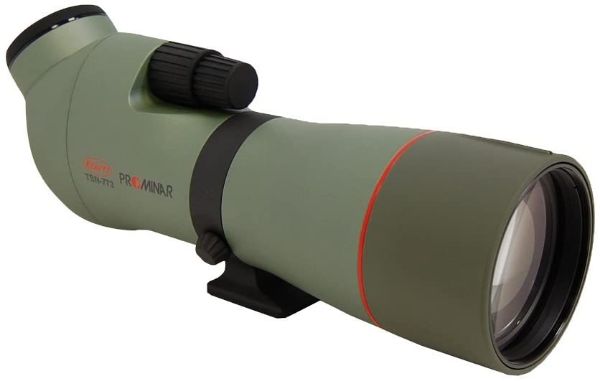
The Kowa TSN 770 series are odd in a couple ways, but it’s undoubtedly one of the best underrated spotting scopes today. It can hold its own in the 85mm class and may just wipe out all in the 65mm class. As a viable competitor against the best, it’s well-suited to long-range use.
Pros:
- Kowa XD Lenses
- Dual focus
- Magnesium alloy
- Eyepiece locking system
- Lightweight
Cons:
- No rubber armor
One of the weirdest things about Kowa spotters is that they lack rubber armor. The armor serves multiple purposes including grip, protection, and sound dampening when using or bumping against the magnesium alloy body. However, we can see where it also shaves off weight, cost, and annoyances of dealing with deteriorating armor over the years.
Another weird thing is its 77mm aperture. It’s an odd number within the 65mm, 80mm, 82mm, and 85mm norm. To have 77mm takes some getting used but there are weight-saving benefits which is made obvious by its 46.9oz weight. It also provides a new standard of light collection between the 65mm and 80mm sizes.
Combine the 77mm aperture with Kowa’s XD lenses that consists of ED glass with a concave lens that has special dispersion properties and you have as near to alpha-glass (fluorite) as you can. No identifiable CA is discernable, and it has edge-to-edge sharpness comparable to the Swarovski ATX 65 and Maven S1.A.
Kowa eyepieces are sold separately and are secured in place with the scope body via the bayonet mounting and locking system. The dual focus knob is preferred among those who want the most stable image at max magnification while fine-tuning the image.
With multiple factors that contribute to its overall light weight and its optical quality and focusing system for precision sharp images, it certainly makes for a Kowa scope suited to long-range use for digiscoping, target shooting, and hunting.
8. Celestron C90 Mak - Best Under $500
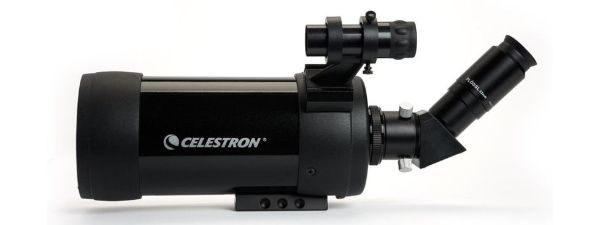
You read that right! The C90 Mak made it into the lineup because it's a nifty, little thing. We never said that long range spotting was limited to use only in the field or at the range. In fact, this spotting scope is a hybrid made to get extreme long range distance into the heavens too!
However, with that said, there are many buyers who swear by the Mak that it's an excellent tool for the range. Spotting those holes at 300 yards is right up the Mak's alley. Want to try even further? Be our guest.
With an 8x21 finderscope attached, you have the ability to access a wider field of view to scan out the area before honing in through the spotter. Additionally, as a hybrid, you can purchase many eyepieces to cater to your hunting, target shooting, or celestial viewing needs!
9. Gosky 20-60X80 - Best Under $200
- Fully multi-coated 80mm green film objective lens, eyepiece and quality prism inside - guarentee the key elements of a spotting scope, and make your view brighter,...
A "Choice" optic definitely found room in the rankings. With high magnification and an 80mm aperture, the Gosky blew us away. It's not that heavy for a full-size spotter weighing in at just over 2.5 lbs.
Its praise is all deserved when it comes to performing well enough at the range to spot groupings for close to intermediate ranges. Glassing beyond that for wildlife and bird watching is its expertise. Since it's digiscope adaptable, memorializing moments can be done in an instant!
It's by far the cheapest spotter in our lineup, and if it's the best of what you can afford, you won't be disappointed.
As a highly sought-after spotter with proven efficiency in performance, it's a keeper!
10. Swarovski ATX/STX 65 - Best High-End
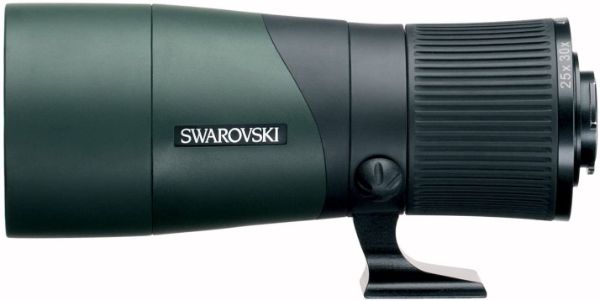
As a personal favorite, the Swarovski ATX/STX 65 Spotting Scopes definitely gets a mention.
They're a one-of-a-kind type of spotting scope with its modular platform - without even having to mention its world-class glass!
But, because this type of system can easily put you into debt several thousands of dollars for all the parts, it's not a value buy.
But, hey! It's a Swaro - all the value is in the quality!
What to Look For in a Long Range Spotting Scope
While we've focused largely on high magnification and large apertures, you should also know that big isn't always better. Full-size spotters can limit portability and convenience if you're a hunter or someone who has some hiking to do before setting up. If this is the case, your best bet is to go with a compact spotting scope with superb glass. It will most likely cost you a pretty penny for the glass quality, but the weight cut won't affect performance when long range glassing is desired.
If extreme long ranging distances is your primary need, consider your priorities. The best spotters are going to be premium optics with matching but well-deserved price tags. If it's for competition use, in the field when that first-shot means everything, or for professional photography, the high-end prices might be well worth it. If it's for recreational use, cut yourself some slack and stick with the recommendations in the lineup where most of them cost under $1000.
Budget
You could spend under $500 on a spotting scope or over $3000 on one for long-range work. The difference will lie in the optical and overall performance of the scope as well as durability stemming from build quality.
Since this budget is varied among everyone, this chart will provide an idea of what realm of price points these spotting scopes will cost you.
| Product | Price Range |
|---|---|
| Zeiss Harpia 85 | Under $4000 |
| Vortex Viper HD | Under $1000 |
| Pentax PF-80ED-A | Under $1000 |
| Leupold SX-5 Santiam HD | Under $2000 |
| Maven S.1A | Under $2500 |
| Bushnell Forge | Under $1500 |
| Kowa TSN-773 | Under $2000 |
| Celestron C90 MAK | Under $200 |
| Gosky | Under $200 |
| Swarovski ATX/STX 65 | Under $1500 |
Glass & Coatings
Overall, many of the best long-range spotting scopes are going to be premium models that have the glass to keep up with the demands of long-range viewing. This includes premium glass elements, glass source, and glass types.
These features must be expected the more the spotting scope costs as this is the feature that determines optical performance at long ranges.
When it comes to coatings, quality also matters. This includes multi-layered coatings, mirror and phase-correction coatings, and weather, scratch, and debris repellent (exterior lens) coatings.
| Product | Glass Type | Coatings |
|---|---|---|
| Zeiss Harpia 85 | SCHOTT (Fluorite) | Zeiss T* |
| Vortex Viper HD | ED glass | XR FMC |
| Pentax PF-80ED-A | ED glass | Super MC |
| Leupold SX-5 Santiam HD | Professional Grade (Fluorite) | FMC & Diamond Coat 2 |
| Maven S.1A | Fluorite | FMC |
| Bushnell Forge | ED glass | FMC & EXO Barrier |
| Kowa TSN-773 | ED glass | FMC |
| Celestron C90 MAK | BAK-4 | MC |
| Gosky | BAK-4 | FMC |
| Swarovski ATX/STX 65 | Fluorite | SwaroVision |
Magnification & Objective Lens Size (Configuration)
On average, the spotting scope configuration will have a large impact on distance reach and resolution at those distances and in various light conditions. The higher the power, the longer seeing and the larger the objective lens, the brighter and possibly more resolution can be had.
20-60x is the standard for a full-size spotting scope, though larger is usually desired for long ranges. However, going down in magnification to a range of 15-45x and improving in glass quality can provide better long ranging performance than a poorly made 20-60x spotter.
There’s a balance that leads you back to optical quality.
| Product | Magnification | Objective Lens Size |
|---|---|---|
| Zeiss Harpia 85 | 22-65x | 85 mm |
| Vortex Viper HD | 20-60x | 85 mm |
| Pentax PF-80ED-A | 20-60x | 80 mm |
| Leupold SX-5 Santiam HD | 27-55x | 80 mm |
| Maven S.1A | 25-50x | 80 mm |
| Bushnell Forge | 20-60x | 80 mm |
| Kowa TSN-773 | N/A | 86 mm |
| Celestron C90 MAK | 39x | 90 mm |
| Gosky | 20-60x | 80 mm |
| Swarovski ATX/STX 65 | 20-60x | 65 mm |
Interchangeable Eyepieces, Eye Relief & FOV
Many times, with premium spotting scopes, interchangeable eyepieces or objective bells are sold separately. This must be considered when determining overall cost as it gets expensive very quickly with modular spotting scopes of this kind.
However, interchangeable eyepieces provide the option to change out power range for versatility in various applications. Some might allow for stargazing and lunar observation (though filters may be needed). Others allow for fixed eyepieces versus variable power.
Depending on the type of interchangeable parts, the FOV and eye relief will be affected.
| Product | Interchangeable | Eyepiece Included | Eye Relief | Field of View (@ 1000 Yards) |
|---|---|---|---|---|
| Zeiss Harpia 85 | Yes - eyepieces | No | 13 mm | 190 – 63 ft |
| Vortex Viper HD | Yes - eyepieces | Yes | 19.6 – 17.8 mm | 101 – 50 ft |
| Pentax PF-80ED-A | Yes – eyepieces | No | 22 – 18 mm | 108 – 56 ft |
| Leupold SX-5 Santiam HD | No | Yes | 19.2 – 16.6 mm | 105 – 73 ft |
| Maven S.1A | No | Yes | 18 – 17 mm | 114 – 84 ft |
| Bushnell Forge | No | Yes | 17 mm | 108 – 55.7 ft |
| Kowa TSN-773 | Yes – eyepieces | No | N/A | N/A |
| Celestron C90 MAK | Yes – eyepieces | Yes | 20 mm | 68 ft |
| Gosky | No | Yes | 17 – 13.5 mm | 115.2 – 57.6 ft |
| Swarovski ATX/STX 65 | Yes – eyepieces | No | 20 mm | 124 – 68 ft |
Size & Weight
In general, it’s assumed that spotting scopes will be tripod mounted for ultimate image stability to get the most out of long-range glassing. Consider your application and choose the best size and weight that is compatible with your needs.
Most stationary applications, like astronomy and long-range target shooting, means that overall size and weight shouldn’t be too much of a concern. However, if you want versatile use out of your spotting scope for hunting and wildlife observation while hiking, you may want to consider your overall weight including tripods and gear.
| Product | Length | Weight |
|---|---|---|
| Zeiss Harpia 85 | 15.1 inches | 68.2 oz |
| Vortex Viper HD | 17.5 inches | 76.6 oz |
| Pentax PF-80ED-A | 16.3 inches | 56.4 oz |
| Leupold SX-5 Santiam HD | 15.7 inches | 68.7 oz |
| Maven S.1A | 14.8 inches | 64.5 oz |
| Bushnell Forge | 17 inches | 61.4 oz |
| Kowa TSN-773 | 12.5 inches | 46.9 oz |
| Celestron C90 MAK | 15.7 inches | 74 oz |
| Gosky | 17.7 inches | 43.4 oz |
| Swarovski ATX/STX 65 | 13.3 inches | 55.9 oz |
Durability
Most spotting scopes, including those under $200, are fog and waterproof. Whether they’re submersible or truly protected from shock (drops, abuse, etc.) is another story. Spotting scopes should be handled with care, but when hunting or moving from point A to point B, weather and accidents happen.
The best spotting scopes will have a thick, durable armor and likely rated for submersion. The cheapest models will handle light rain, but it’s best to keep them covered. A case that allows for use while it’s mounted is a great way to ensure protection for unexpected exposure to the elements or unintentional drops and knocks.
| Product | Waterproof | Fogproof |
|---|---|---|
| Zeiss Harpia 85 | Yes | Yes – nitrogen |
| Vortex Viper HD | Yes | Yes – argon |
| Pentax PF-80ED-A | Yes | Yes – nitrogen |
| Leupold SX-5 Santiam HD | Yes | Yes – nitrogen |
| Maven S.1A | Yes | Yes – nitrogen |
| Bushnell Forge | Yes | Yes - nitrogen |
| Kowa TSN-773 | Yes | Yes – nitrogen |
| Celestron C90 MAK | No* | No |
| Gosky | Yes | Yes – nitrogen |
| Swarovski ATX/STX 65 | Yes | Yes - nitrogen |
*Not waterproof - water-resistant
Long Ranging Priorities to Consider
Just because you may have a long range spotter, it doesn't mean you'll always be able to see out to 1,000 yards and further the way you want to - no matter how much you paid. Atmospheric and terrain conditions have a huge role to play in clarity at distances that far.
Remembering a scope's limitations might enable you to work your way around mirage, wind, and unpredictable terrain. Not only does it take a good spotting scope to see long distances, it takes a good user too!
Further Reading
- Swarovski ATX/STX 65mm Spotting Scope Objective Review (& Eyepieces)
- Swarovski ATS 65 HD Spotting Scope Review (With & Without Eyepiece)
- Swarovski STR 80 Spotting Scope Review - MOA Reticle (49832)
- Leica APO Televid 82 Spotting Scope Review (25-50X Eyepiece & Extender)
- Meopta MeoPro 80 HD Review - 20-60x80mm Angled Spotting Scope





I purchased a Vortex Optics Diamondback HD 16-48x65mm and honestly I was at the shooting range trying to spot 200 yards it was good but when I tried 300 yards no way it was no good what so ever...
When I purchased this spotting scope I asked what was the max range? They said 1000 yards.. I don't think so...
What you recommend? My budget is $600.00...
Hi Miguel,
The Celestron C90 Mak is a great little spotting scope that is in your price range. You should be able to resolve bullet holes on paper at 200-300 yards but is not likely to extend beyond that. For greater distances you will likely need to increase your budget.